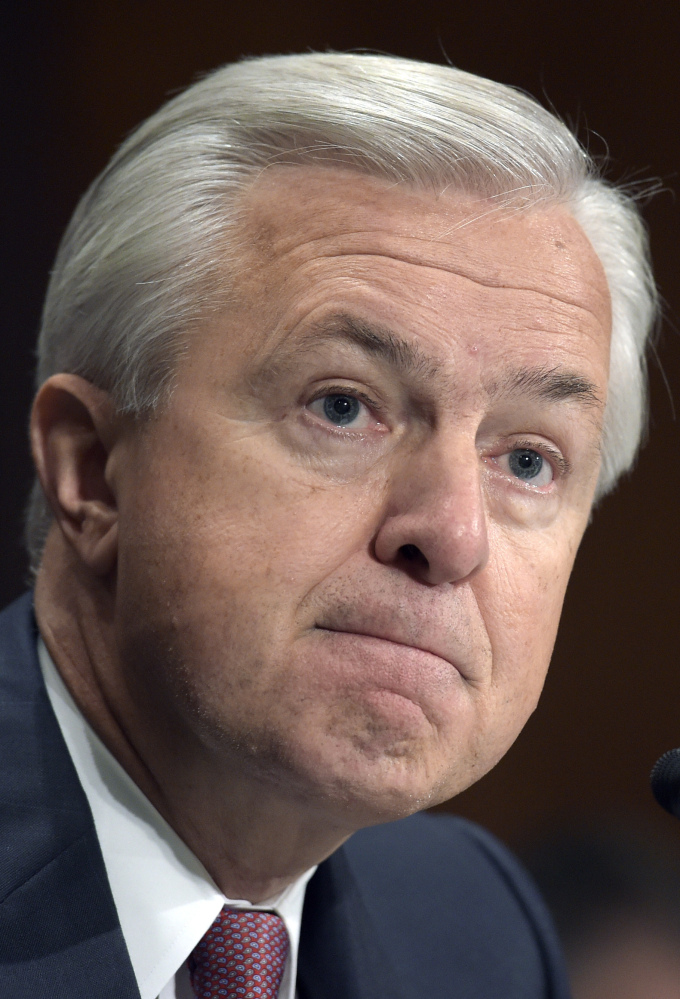Wells Fargo’s move late Tuesday to strip its chief executive of $41 million in compensation after a sales scandal did little to temper criticism of the company, as the megabank faced new sanctions from authorities in California.
The decision to take back thousands of shares of unvested stock from John Stumpf is the first time a high-ranking banking industry executive has personally faced such a steep penalty for company misdeeds since the 2008 financial crisis.
But, critics say, Wells Fargo is leaving its longtime chief executive with more than $100 million in stock and millions of dollars in salary he earned while thousands of mostly low-level employees, trying to reach aggressive sales goals, were setting up accounts that customers did not request.
On Wednesday, California State Treasurer John Chiang imposed sanctions on the San Francisco-based bank, saying that the state would not invest in the firm’s stock or use many of its services for a year.
“Wells Fargo’s fleecing of its customers by opening fraudulent accounts for the purpose of extracting millions in illegal fees demonstrates, at best, a reckless lack of institutional control and, at worst, a culture which actively promotes wanton greed,” Chiang said in a statement. “How can I continue to entrust the public’s money to an organization which has shown such little regard for the legions of Californians who have placed their financial well-being in its care?”
In a statement, Wells Fargo accepted responsibility. “Wells Fargo has diligently and professionally worked with the state for the past 17 years to support the government and people of California,” the statement said.
The bank is likely to come in for more criticism Thursday, when Stumpf is set to testify before the House Financial Services Committee. In testimony that closely mirrors what he told a Senate committee last week, Stumpf plans once again to apologize to customers and the American public for the scandal and note extensive steps the bank has taken to prevent such misdeeds in the future.
“Wrongful sales practice behavior goes entirely against our values, ethics, and culture and runs counter to our business strategy of helping our customers succeed financially and deepening our relationship with those customers,” he said, according to written testimony obtained by The Washington Post.
Earlier this month, Wells Fargo acknowledged that it had fired 5,300 workers over five years for setting up accounts that customers had not requested. Even though Wells Fargo agreed to pay a $185 million fine, authorities are examining the company’s internal response to the scandal, including why, at least initially, no senior executives were held personally responsible.
The case has reignited frustration among consumer advocates about the eye-popping salaries that are common on Wall Street and the difficulty of getting any of that money back when institutions run afoul of regulators.
Send questions/comments to the editors.



Success. Please wait for the page to reload. If the page does not reload within 5 seconds, please refresh the page.
Enter your email and password to access comments.
Hi, to comment on stories you must . This profile is in addition to your subscription and website login.
Already have a commenting profile? .
Invalid username/password.
Please check your email to confirm and complete your registration.
Only subscribers are eligible to post comments. Please subscribe or login first for digital access. Here’s why.
Use the form below to reset your password. When you've submitted your account email, we will send an email with a reset code.